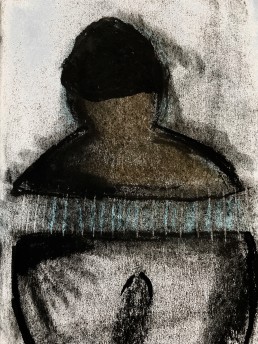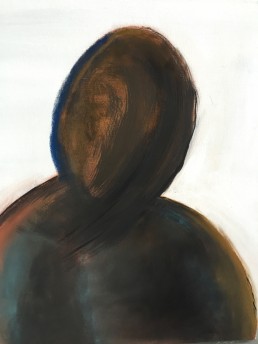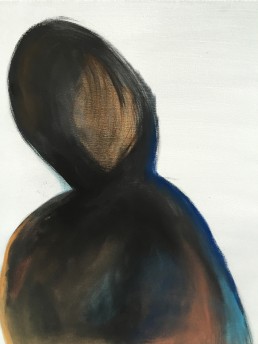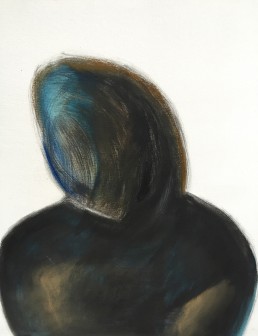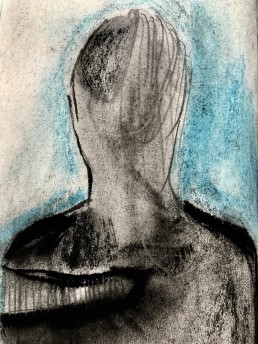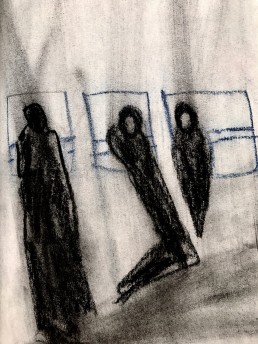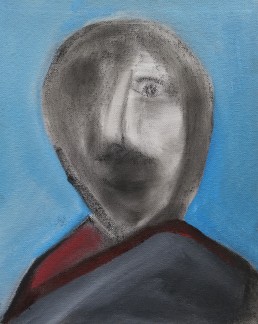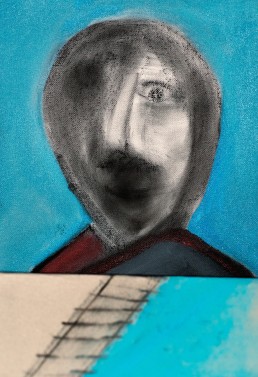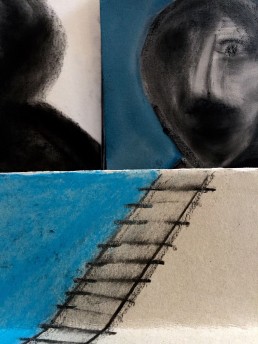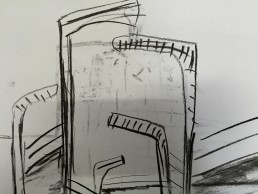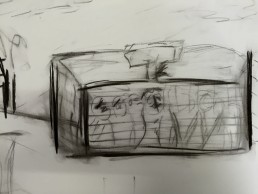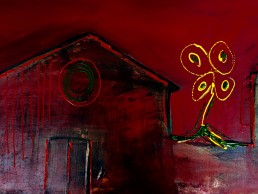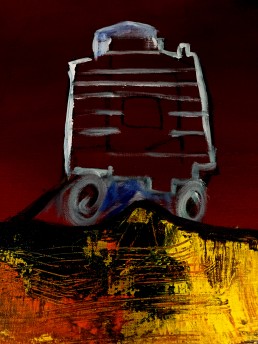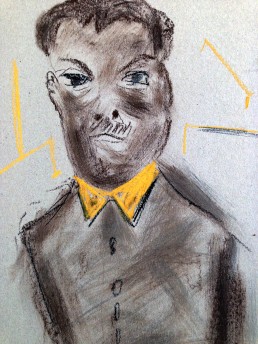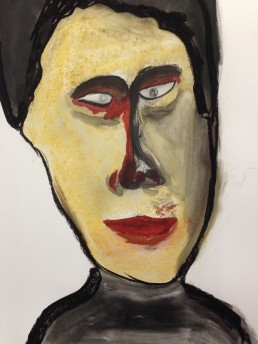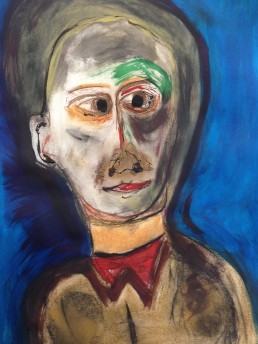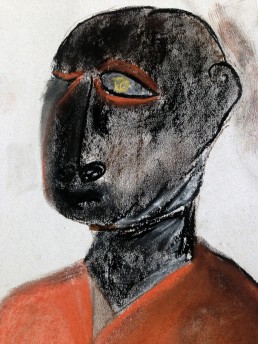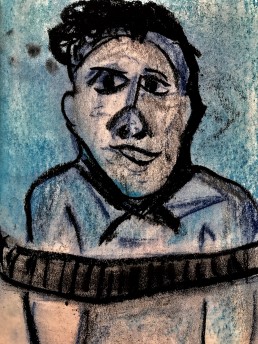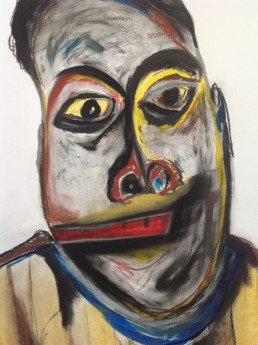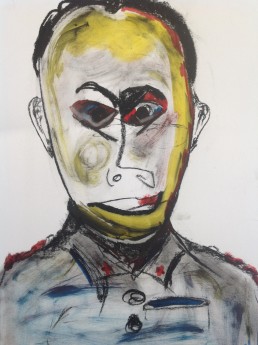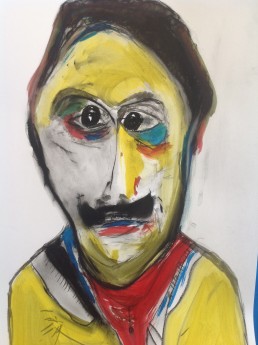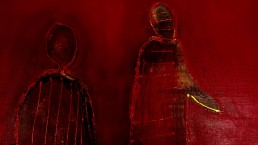AFTER BABI YAR
About After Babi Yar
I visited Babi Yar for the first time in the summer of 2016. We took the metro from the center of Kiev and were there in no time. We walked out of the tram and into a green park. And then, without any help from the kitsch memorials to the more than 33,000 Jews killed there, we found ourselves overwhelmed. Back in 1941. We walked along the tops of the ravines. We thought of those who had once walked that path. My partner walked separately. She said Kaddish. I worried about her. Was she okay? There is something in these places that changes you forever. You are one person before you visit and another after.
ABOUT STUPID KINDNESS
STUPID KINDNESS
Statement
“It is not always events that have touched us personally that affect us the most.”
― Elie Wiesel, Night
I was just old enough to become politically active during the time of the Shah. I was a teenager, born into a Muslim family, in the dusty capital of Iran’s Central Province. I was filled with a desire for justice and the conviction that ours could be a better society. In the first years after the Shah fell, it became clear that leftists and others were being targeted for torture, imprisonment, and execution. That’s when I fled the country, first to Pakistan and eventually to the Netherlands. The Netherlands became my new home and, almost immediately I came into contact with survivors of the Holocaust. They were my teachers and mentors. They were artists I respected.
I could feel something still haunting my new home. There was so much unspoken. As I struggled to understand my own country’s recent past and my new country’s culture, I found that I was turning to survivors of the Holocaust and the history of World War II for answers.
Stupid Kindness is a series of paintings and drawings inspired by research into the Holocaust.
The title is taken from Vassily Grossman’s book Life and Fate:
“This kindness, this stupid kindness, is what is most truly human in a human being. It is what sets man apart, the highest achievement of his soul. No, it says, life is not evil!”
As the years passed in Europe, I became more and more curious about the history of World War II and the Holocaust. I began reading everything hI could, from books by Elie Wiesel and Vassily Grossman to the more recent novel The Kindly Ones.
I began talking with experts and survivors. What I learned from this research took root in my imagination, forcing its way onto canvas in a series of paintings and drawings.
In these images there is anguish and horror, despair and hope, anger and survival. The landscape is on fire. The portraits are marked by terror, surrender, and exhaustion.
It sometimes feels as if the history of the Holocaust and the memories of its victims are a virus that have burned themselves into our very souls. As if their memories have become ours. As Elie Wiesel wrote:
“It is not always events that have touched us personally that affect us the most.”
PROJECTS
“It is not always events that have touched us personally that affect us the most.”
― Elie Wiesel, Night
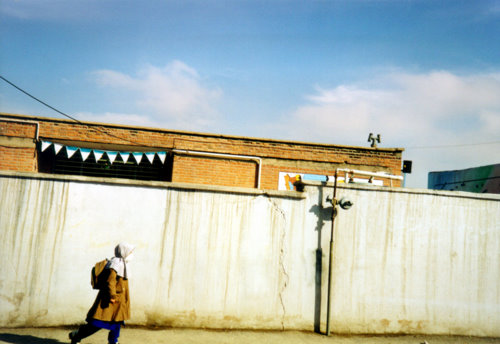
I was just old enough to become politically active during the time of the Shah. I was a teenager, born into a Muslim family, in the dusty capital of Iran’s Central Province. I was filled with a desire for justice and the conviction that ours could be a better society. In the first years after the Shah fell, it became clear that leftists and others were being targeted for torture, imprisonment, and execution. That’s when I fled the country, first to Pakistan and eventually to the Netherlands. The Netherlands became my new home and, almost immediately I came into contact with survivors of the Holocaust. They were my teachers and mentors. They were artists I respected.
I could feel something still haunting my new home. There was so much unspoken. As I struggled to understand my own country’s recent past and my new country’s culture, I found that I was turning to survivors of the Holocaust and the history of World War II for answers.
Stupid Kindness is a series of paintings and drawings inspired by research into the Holocaust.
The title is taken from Vassily Grossman’s book Life and Fate:
“This kindness, this stupid kindness, is what is most truly human in a human being. It is what sets man apart, the highest achievement of his soul. No, it says, life is not evil!”
As the years passed in Europe, I became more and more curious about the history of World War II and the Holocaust. I began reading everything I could find, from books by Elie Wiesel and Vassily Grossman to the more recent novel The Kindly Ones.
I began talking with experts and survivors. What I learned from this research took root in my imagination, forcing its way onto canvas in a series of paintings and drawings.
In these images there is anguish and horror, despair and hope, anger and survival. The landscape is on fire. The portraits are marked by terror, surrender, and exhaustion.
It sometimes feels as if the history of the Holocaust and the memories of its victims are a virus that have burned themselves into our very souls. As if their memories have become ours. As Elie Wiesel wrote:
“It is not always events that have touched us personally that affect us the most.”
The project has three parts:
PAINTINGS
I am currently working on a series of paintings inspired by my research into the Holocaust. Since 2008, I have been studying the Holocaust, learning as much as I can. I have traveled to Auschwitz and Sobibor. I have spoken with survivors. I have read their memoirs and their histories. Sometimes making art is the only way I can deal with everything I am learning.
I call the series Stupid Kindness. It’s from a passage in the amazing book by Vasily Grossman: Life and Fate. Here is one quote:
“This kindness, this stupid kindness, is what is most truly human in a human being. It is what sets man apart, the highest achievement of his soul. No, it says, life is not evil!
This kindness is both senseless and wordless. It is instinctive, blind…Kindness is powerful only while it is powerless. If Man tries to give it power, it dims, fades away, loses itself, vanishes.”
You can view the work here: After Babi Yar | Connecting Memories | Interrogation
